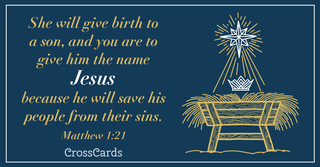
- Recent Translations
- All Translations
Mǎtaìfúyīn 1
Share
Settings
Mǎtaìfúyīn 1 Commentary
Chapter 1
Matthew, surnamed Levi, before his conversion was a publican, or tax-gatherer under the Romans at Capernaum. He is generally allowed to have written his Gospel before any other of the evangelists. The contents of this Gospel, and the evidence of ancient writers, show that it was written primarily for the use of the Jewish nation. The fulfilment of prophecy was regarded by the Jews as strong evidence, therefore this is especially dwelt upon by St. Matthew. Here are particularly selected such parts of our Saviour's history and discourses as were best suited to awaken the Jewish nation to a sense of their sins; to remove their erroneous expectations of an earthly kingdom; to abate their pride and self-conceit; to teach them the spiritual nature and extent of the gospel; and to prepare them for the admission of the Gentiles into the church.
The genealogy of Jesus. (1-17) An angel appears to Joseph. (18-25)
Verses 1-17 Concerning this genealogy of our Saviour, observe the chief intention. It is not a needless genealogy. It is not a vain-glorious one, as those of great men often are. It proves that our Lord Jesus is of the nation and family out of which the Messiah was to arise. The promise of the blessing was made to Abraham and his seed; of the dominion, to David and his seed. It was promised to Abraham that Christ should descend from him, Ge. 12:3 Ge. 22:18 ; and to David that he should descend from him, 2Sa. 7:12 ; Ps. 89:3 , &c.; 132:11; and, therefore, unless Jesus is a son of David, and a son of Abraham, he is not the Messiah. Now this is here proved from well-known records. When the Son of God was pleased to take our nature, he came near to us, in our fallen, wretched condition; but he was perfectly free from sin: and while we read the names in his genealogy, we should not forget how low the Lord of glory stooped to save the human race.
Verses 18-25 Let us look to the circumstances under which the Son of God entered into this lower world, till we learn to despise the vain honours of this world, when compared with piety and holiness. The mystery of Christ's becoming man is to be adored, not curiously inquired into. It was so ordered that Christ should partake of our nature, yet that he should be pure from the defilement of original sin, which has been communicated to all the race of Adam. Observe, it is the thoughtful, not the unthinking, whom God will guide. God's time to come with instruction to his people, is when they are at a loss. Divine comforts most delight the soul when under the pressure of perplexed thoughts. Joseph is told that Mary should bring forth the Saviour of the world. He was to call his name Jesus, a Saviour. Jesus is the same name with Joshua. And the reason of that name is clear, for those whom Christ saves, he saves from their sins; from the guilt of sin by the merit of his death, and from the power of sin by the Spirit of his grace. In saving them from sin, he saves them from wrath and the curse, and all misery, here and hereafter. Christ came to save his people, not in their sins, but from their sins; and so to redeem them from among men, to himself, who is separate from sinners. Joseph did as the angel of the Lord had bidden him, speedily, without delay, and cheerfully, without dispute. By applying the general rules of the written word, we should in all the steps of our lives, particularly the great turns of them, take direction from God, and we shall find this safe and comfortable.
Mǎtaìfúyīn 1 Commentaries
Chapter Summary
INTRODUCTION TO MATTHEW
The subject of this book, and indeed of all the writings of the New Testament, is the Gospel. The Greek word euaggelion signifies a joyful message, good news, glad tidings of good things; such as Christ was anointed to preach, the Angels brought to the shepherds, and the Evangelists, Apostles, and Ministers of Christ published to the world. \Isa 61:1, 52:7 Lu 2:10\. And such is the account given by this inspired writer, of the incarnation, life, actions, ministry, miracles, sufferings, and death of Jesus Christ; whereby peace and reconciliation, pardon and righteousness, atonement and redemption, life and salvation, are obtained for lost, perishing sinners. The Jews, to whom the message of grace was first sent, and among whom the Gospel was first preached, having despised and rejected it; they and their posterity, in allusion to the word "Evangelion", most wickedly and blasphemously call the whole New Testament, Nwylg Nwa or Nwylg Nwe "Aven Gilion" {a}, a "revelation", or "volume of iniquity and vanity"; but "blessed are the people that know the joyful sound", see Ps 89:15. The writer of this Gospel, Matthew, who also was called Levi in Lu 5:27 was by occupation a publican, or tax-gatherer, and was in his employ when Christ called him by his grace. He was one of the twelve Apostles sent forth by Christ to preach the Gospel of the kingdom, Mt 10:3 and was honoured to be the first of the writers of the New Testament, and to be the first publisher therein of the good news of the incarnate Saviour; and was a wonderful instance of the rich and sovereign grace of God. Though he was employed in collecting the Roman tax, yet he was of Jewish extract; as appears from his being called the son of Alphaeus, Mr 2:14 and from his name Matthew Levi; for as the latter, so the former is an Hebrew name. The Jews say {b} one of the disciples of Jesus was called yatm, Matthai or Matthew: his name signifies a "gift" or "given"; he was one of those the Father had given to Christ, and was kept by him, when the son of perdition was lost, Joh 17:6,9,11,12. It may not be improper to inquire in what language this Gospel was written. The ancient Christian writers were generally of opinion, that Matthew wrote it in Hebrew; Papias and {c} Pantaenus were of this mind, as also Irenaeus {d}, Origen {e} Eusebius {f}, Athanasius {g}, Epiphanius {h}, and Jerom {i}; and it is asserted in the titles of the Arabic and Persic versions, and at the end of the Syriac version of this Gospel, that it was written in that language; and this opinion is espoused by Grotius and Hammond, though justly exploded by others; for what has been published by Munster, Mercer, Hutter, and Robertson, are translations, made by themselves or others, and of no antiquity: and since Hebrew and Syriac words are interpreted in this Gospel, see Mt 1:23, 27:33,46 which would not have been done, had it been written in either language; and since Matthew generally follows the Septuagint version in the passages cited by him out of the Old Testament; and since the Hebrew language was not generally known at that time to the common people, only to the learned; for the law and the prophets, when read in the synagogues in that language, required an interpreter; and since the Greek tongue was the language more commonly spoken, and the rest of the Evangelists wrote in Greek, and the Gospel was designed for the Gentiles as well as the Jews; it is most reasonable to conclude that this Gospel also was wrote in Greek; whereby that ancient prophecy was fulfilled, at least in part, "God shall enlarge" or "persuade Japheth, and he shall dwell in the tents of Shem", Ge 9:27 the Gospel being published in the language of Japheth, the Greek language, which the Jews, the posterity of Shem, now understood; agreeably to which the Palmudic writers interpret the prophecy; says {k} Bar Kaphra, mentioning the above words,
``They shall speak tpy lv wnwvlb in the language of Japheth, in the tents of Shem;''
or,
``the words of the law shall be spoken in the language of Japheth, in the midst of the tents of Shem {l}.''
R. Jochanan {m} explains them thus:
``tpy lv wyrbr "the words of Japheth" shall be in the tents of Shem; and says R. Chiya ben Aba, the sense of it is, The beauty of Japheth shall be in the tents of Shem.''
Which the gloss interprets thus:
``The beauty of Japheth is the language of Javan, or the Greek language, which language is more beautiful than that of any other of the sons of Japheth.''
The time when this Gospel was written is said {n} by some to be in the eighth or ninth, by others, in the fifteenth year after the ascension of Christ, when the Evangelist had received the extraordinary gifts of the Spirit, among which was the gift of tongues; and when the promise of Christ had been made good to him, Joh 14:26.
{a} T. Bab. Sabbat. fol. 116. 1. Vet. Nizzachou. p. 15, 39, 87, 94, 137, 186. Ed. Wagenseil. {b} T. Bab. Sanhedrim, fol. 43. 1. {c} Euseb. Hist. Eccl. l. 3. c. 39. p. 113. Vid. ib. l. 5. c. 8. p. 172. c 10. p. 175. & l. 6. c. 25. p. 226. {d} Adv. Haeres. l. 3. c 1. {e} In Matt. Tom. l. p. 203. Ed. Huet. {f} Eccl. Hist. l. 3. cap. 24. p. 95. {g} Synops. sacr. Script. p. 134. Vol. 2. {h} Contra Haeres. l. 1. Haer. 29. & 30. {i} Catalog. Script. Eccles fol. 90. Tom. 1. ad Hedib. fol. 46. Tom. 3. {k} T. Hieros. Megilla, fol. 71. 2. {l} Bereshit. Rabba, sect. 36. fol. 32. 1. {m} T. Bab. Megilla, fol. 9. 2. {n} Vid. Fabricii Biblioth. Graec. l. 4. c. 5. sect. 2. p. 197. & Vales. not. in Euseb. Eccl. Hist. p. 52.
00001-940527-0954-Mt1.1
